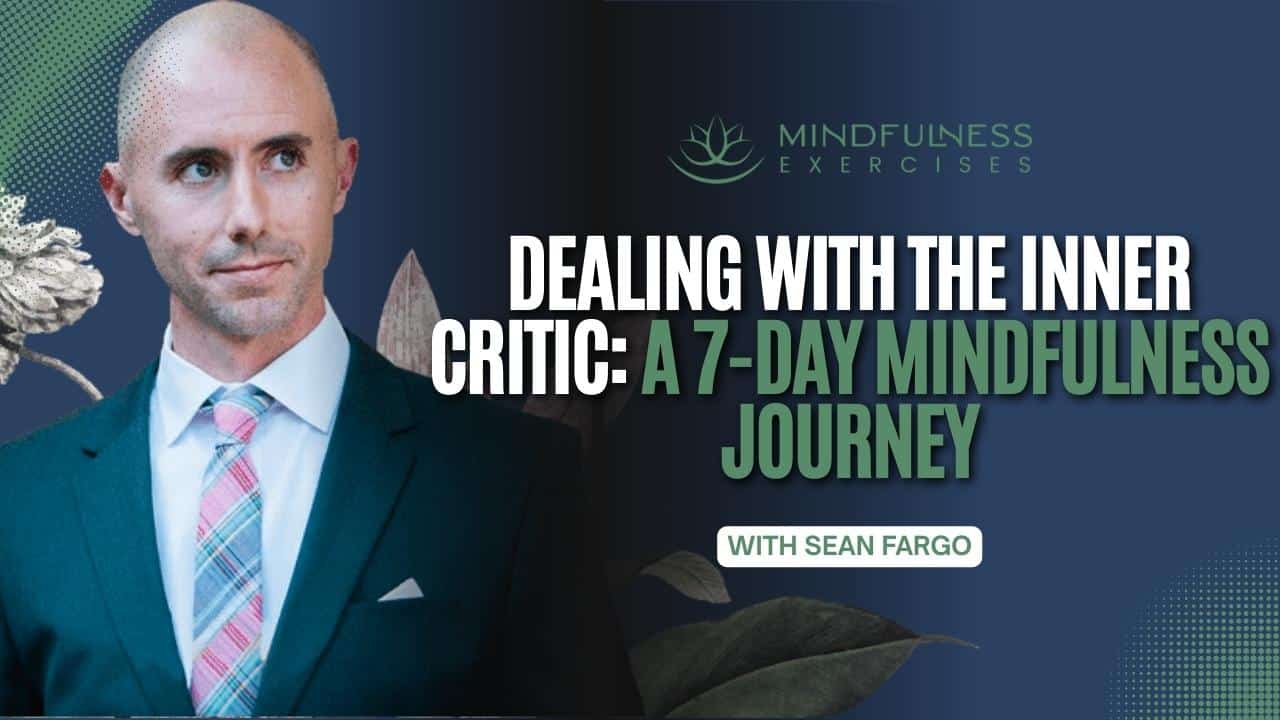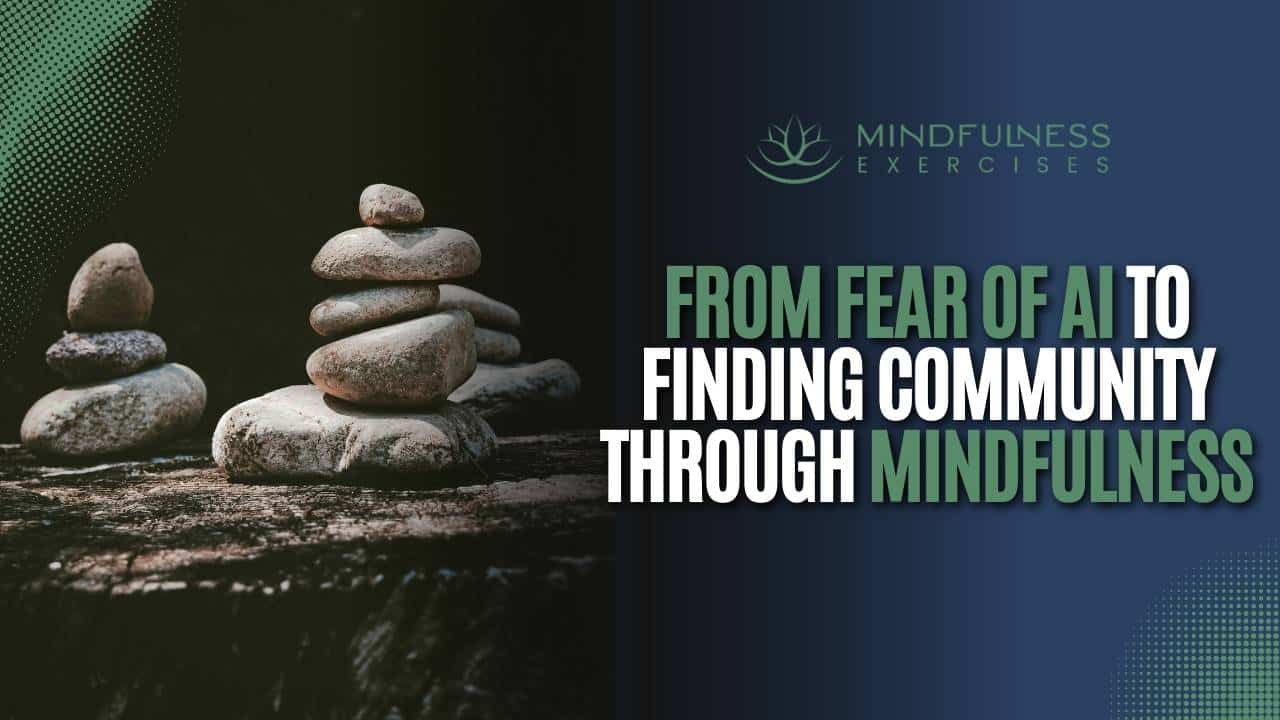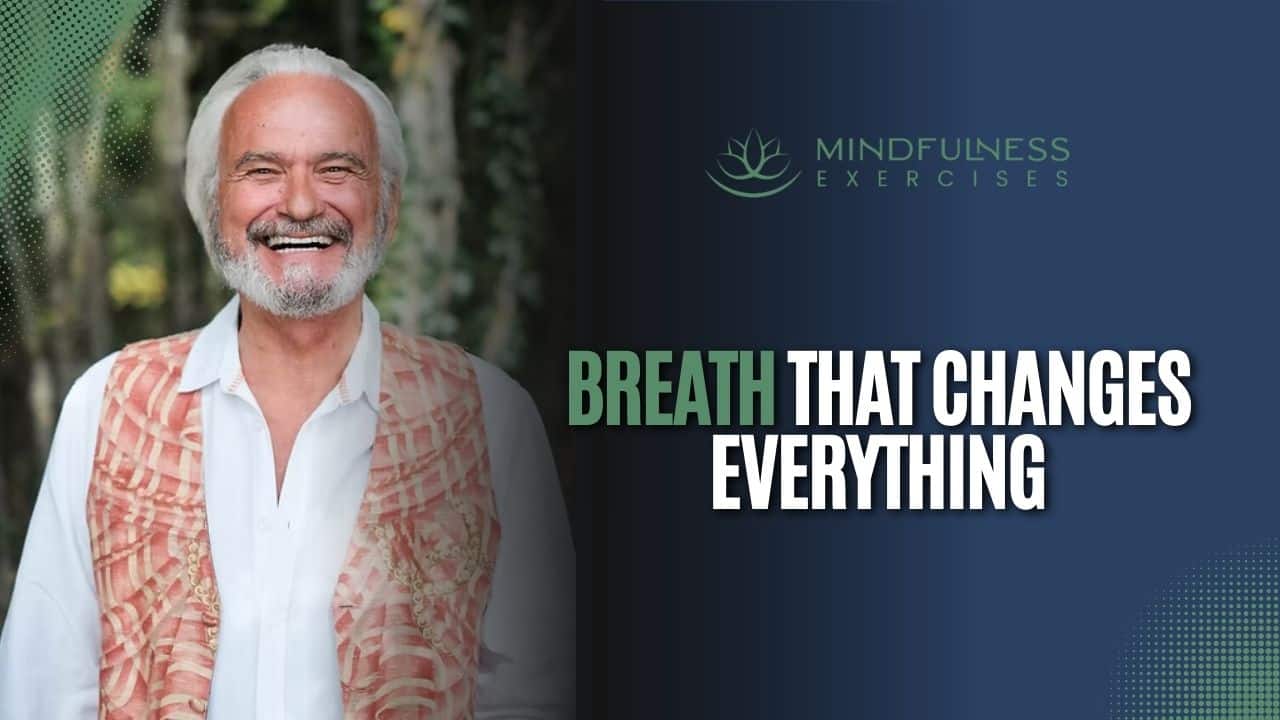Listen now
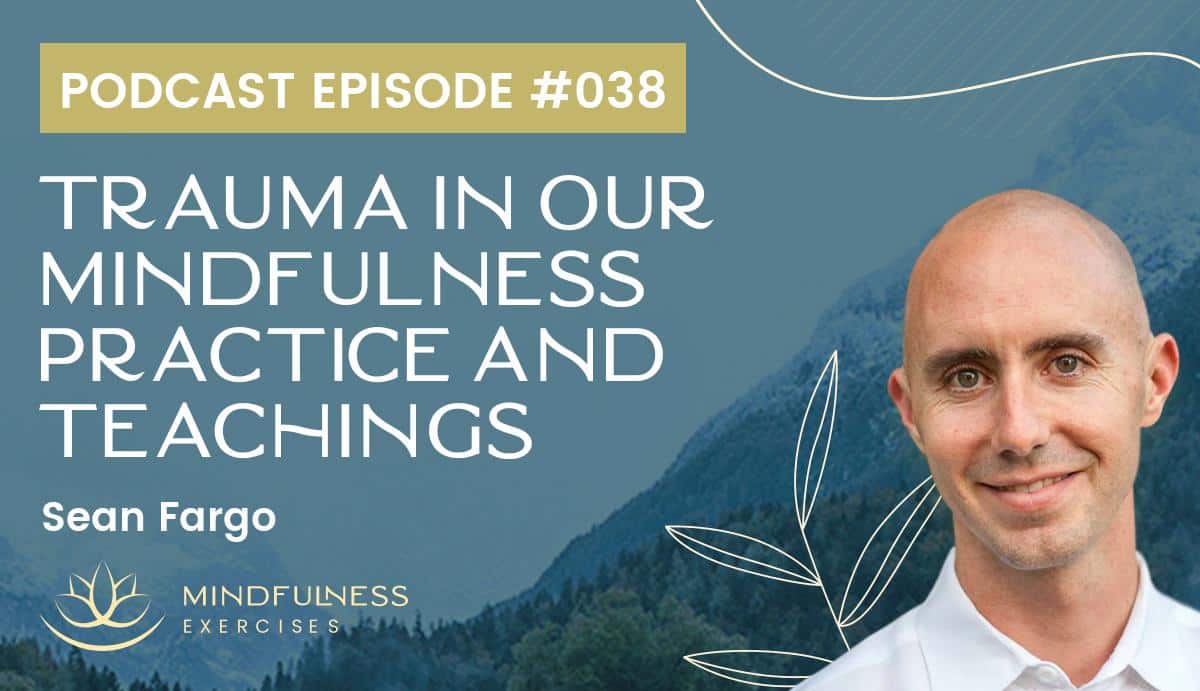
We’ve all experienced some type of trauma. It’s simply part of being human. As we deepen our mindfulness practice and become more aware of what’s present in each moment, we may notice that painful, unprocessed trauma still lingers. In this episode, Sean Fargo offers practical advice on how we might expand our capacity to remain mindful, even when mindfulness brings awareness to pain or discomfort.
As you listen, please remember that mindfulness practice is not a replacement for therapy. Apply self-compassion and learn to stay within your window of tolerance. If this, or any other episode, triggers overwhelming, uncomfortable feelings, please contact your healthcare provider.
Sponsored by our Mindfulness Meditation Teacher Certification Program
certify.mindfulnessexercises.com
What You’ll Learn in This Episode:
Show Notes:
How our own trauma can help us as teachers
It’s a common misconception that teachers must be perfectly healed before sharing our journey or guiding others toward wellness. But we can begin to help others while still processing our own pain. By deepening awareness of our own experience of trauma and healing, we become more capable of teaching others how to mindfully navigate trauma. Our past adverse experiences can also make us more willing, passionate guides.
“If there’s a certain kind of challenge that we’ve had personally in our lives, that can help enable us to reach others in that similar boat more effectively. And we will often find more passion, and we will come across with more presence, and energy and care.”
Why awareness of our triggers is important
In our meditation practice, we do our best to accept the present moment just as it is, free from judgment and the compulsion to react. It can be especially hard to apply these principles of non-judgement and non-reactivity when receiving feedback on our teaching. If criticism or negative feedback is triggering for us, that’s worthy of exploration. This type of feedback can help us grow and hone our teaching.
“As teachers I think it’s helpful to welcome feedback, to welcome authentic responses. We’re not here to just only listen to the good feedback about how great it was or how cool we are. It’s to welcome anything without judgment. As mindfulness teachers, can we lead by example of welcoming raw, authentic experience without judgment, whether it’s ours or theirs?”
The responsibility we have to become trauma informed
It’s our responsibility as teachers to minimize harm to others as best as we can. We can start by listening to our students and carefully considering our words. We can also educate ourselves on how and when to modify our offerings, what alternative practices we might suggest, and what it means to be generally more trauma sensitive. Sean recommends the book, Trauma Sensitive Mindfulness by David Treleaven, a past guest on our podcast.
“Consider informing yourself bit by bit around trauma. I’m not here to sound an alarm bell that you have to be extremely cautious with every word you say, and I think it’s very helpful for all mindfulness teachers to have that on their radar and to know how to navigate sensitive topics.”
Understanding the boundaries of our experience level
It’s always beneficial to be mindful of our personal window of tolerance and our own experience level, both as teachers and as practitioners. While some teachers are professionally equipped to walk people through their most adverse experiences, others do not have this level of training. Minimizing harm includes knowing what is outside our capacity, and what is within.
“We don’t want to go into territory too deep for our experience level. We don’t want to call up terror, we don’t want to call up near death experience if we’re not clinically trained to handle that. We don’t want to call up significant unhealed trauma, but we can call up things within people’s window of tolerance, within our wheelhouse of healing, but to go in baby steps.”
How mindfulness naturally develops compassion
The more practiced we become at sensing into this moment, just as it is, without trying to fix, change or rationalize, the more self-aware we become. As self-awareness develops, so does empathy. Becoming better at feeling what we feel makes us more capable of understanding what others feel. In this way, mindfulness naturally leads to compassion.
“It’s difficult to be empathic with everyone in all situations because we haven’t been through all situations, but the more self-aware we are, the more empathic we just naturally become. And the more empathic we are, the more opportunity there is for compassion.”
Balancing trauma sensitive principles while encouraging courage
We cannot predict any individual’s response to our teaching, nor is it possible to completely prevent adverse reactions to meditation. But, we can do our best to minimize harm and refrain from judging ourselves or others when things don’t go as planned.
“Sometimes it’s impossible to prevent people from being re-triggered by something. It happens. Sometimes one person may have had a traumatic experience around something that we could never have imagined. [...] So we can hold that with care, and apologies and compassion, but sometimes that happens, and there’s nothing we could have anticipated. We can do our best to use some trauma sensitive principles. For the majority of people that will be very helpful. But we also can’t walk on eggshells too much.”
Additional Resources:
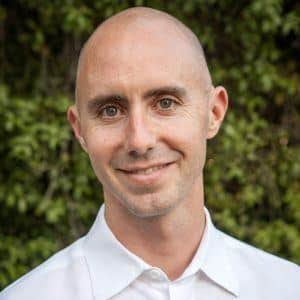
About Sean Fargo
Sean Fargo is a former Buddhist monk and the founder of Mindfulness Exercises. The online platform, which has shared free and premium mindfulness resources with over 3 million people worldwide, has now certified over 500 Mindfulness Teachers.
Sean is the lead instructor for the teacher training program, a unique self-paced approach which invites world-renowned mindfulness teachers to share their insights and experiences. Sean has taught mindfulness and meditation for corporations including Facebook, Google and Tesla and for health and government organizations, prisons and hospitals around the world.

